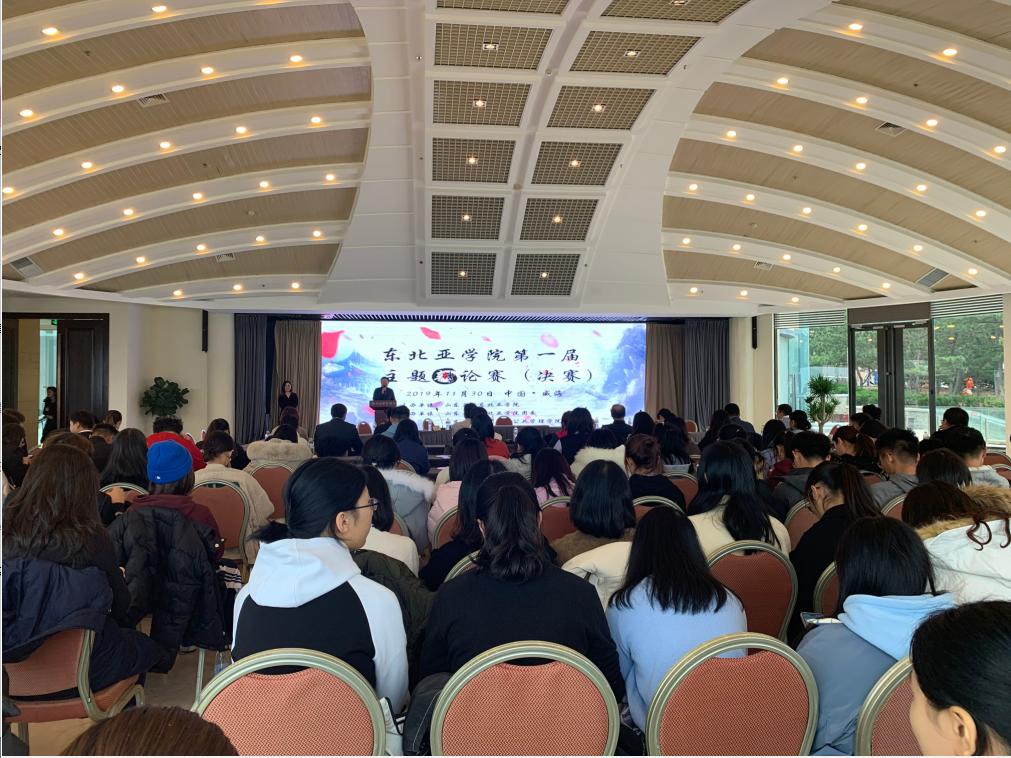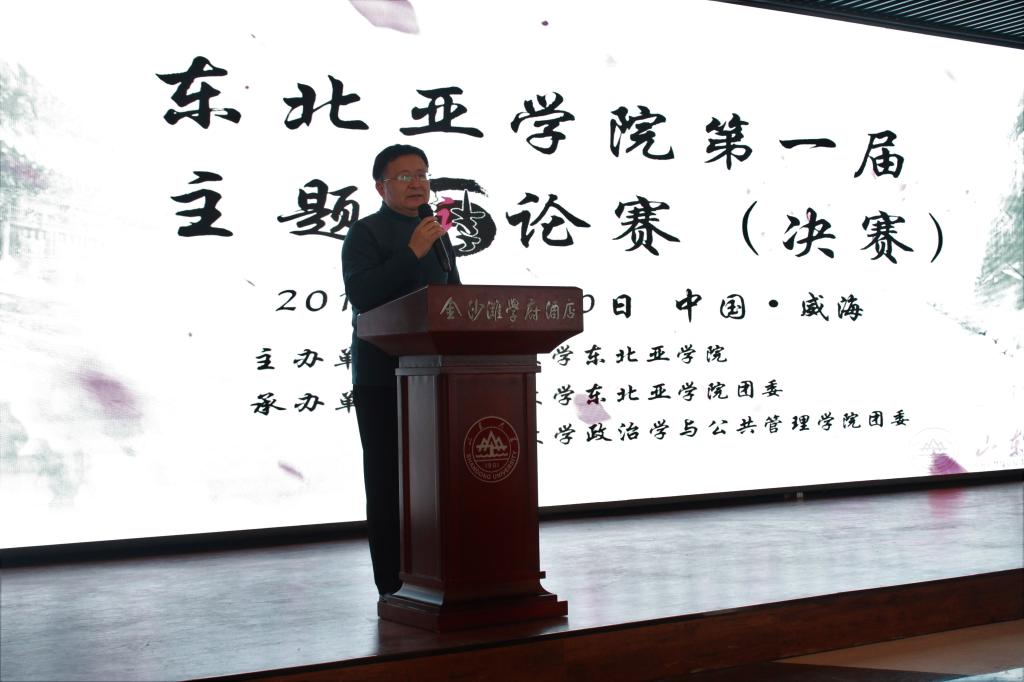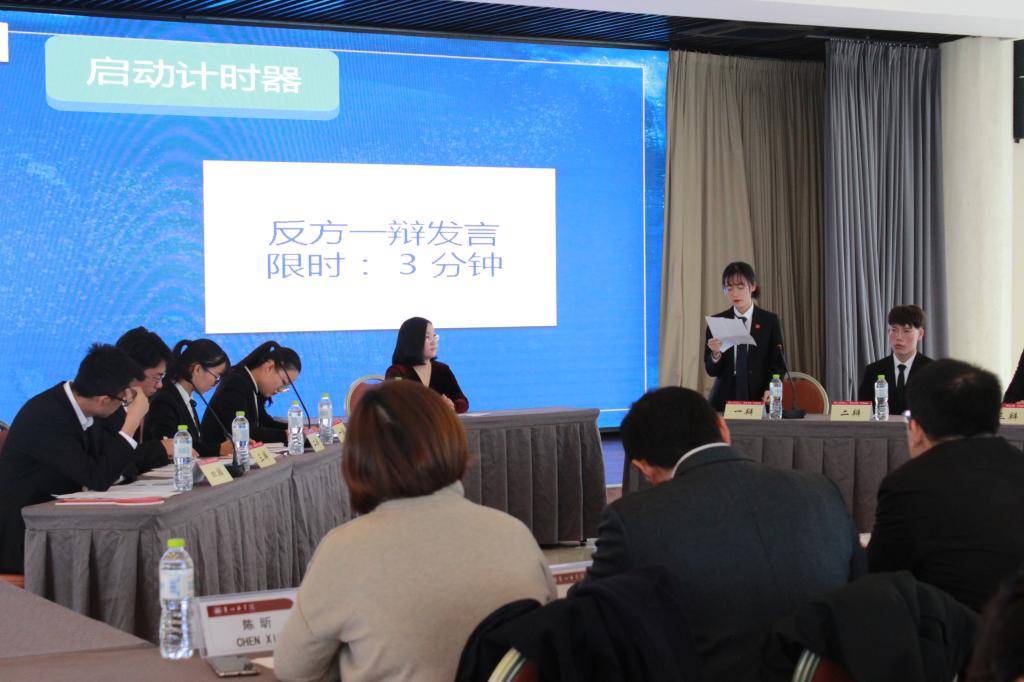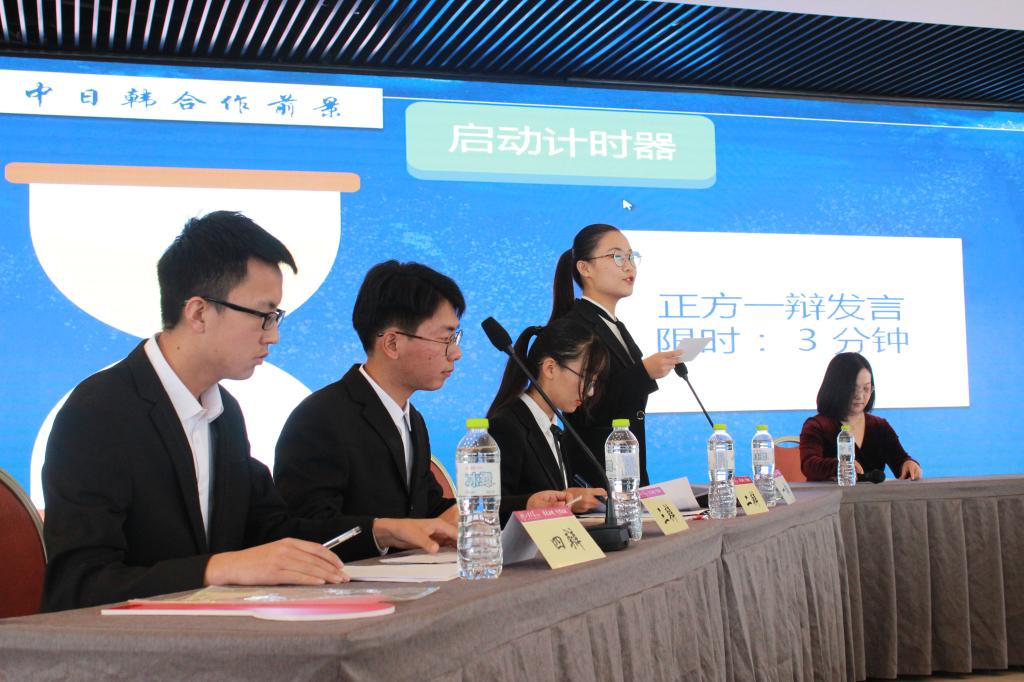In order to develop students’ dialectical thinking and international perspectives, after a round of preliminary trials, at 2 pm on November 30th, School of Northeast Asia Studies held the final of its first theme debate at the International Academic Exchange Center. 10 professors served as judges, including Professor Zhang Yunling, a first-tier professor from Shandong University; Professor Zhao Yupu, Deputy Secretary of the CCP Working Committee of SDU at Weihai and Dean of School of Northeast Asia Studies; Professor Wu Wenxin, Dean of Marxist Studies School, Gu Lixia, Secretary of the CCP Committee of School of Northeast Asia Studies, Yu Zhentao, Secretary of the Youth League Committee of SDU at Weihai, Sang Weilin, Deputy Secretary of the CCP Committee of School of Political Science and Public Administration; Bi Yingda, Vice Dean of School of Northeast Asia Studies; Chen Xin, Deputy Secretary of the CCP Committee of School of Northeast Asia Studies; and Zhu Yutang and Dong Wei from School of Translation and Interpretation. More than 200 teachers and students attended this event. The debate was divided into a Chinese group and an English group. The Chinese group is composed of four teams from School of Northeast Asia Studies at Weihai Campus and the School of Political Science and Public Administration at Qingdao Campus. The English group is made up of two teams from School of Northeast Asia Studies. The competition was chaired by Associate Professor Li Dongxin, head of the Department of International Politics and Economics, School of Northeast Asia Studies.






At the beginning of the competition, Dean Zhao gave an opening speech. He said that the debate was designed to train students’ ability to think dialectically, and to create a platform for students to develop an international perspective. It is a great move for the School to cultivate composite talents. He expected that the debaters will “debate with manner and reason”.
The theme of this debate is “The Prospect of Cooperation among China, Japan, and South Korea”. The two Chinese teams argued and rebutted fiercely. At the opening statement stage, each team’s first debater made specific statements on their views; At the time-limited rebutment stage, the second and third debaters made appropriate and strong rebuttal; At the free debate stage, the debaters spoke fluently and reasonably; At the closing statement stage, the two sides clearly reiterated their views. The English teams, after careful preparation, demonstrated Shandong University students’ logical thinking ability, adaptability, English language ability, as well as displayed a collision of thoughts and an immersion of language. Their wonderful performance deeply impressed the audience and judges like Professor Bi, Sang and Dong, who commented highly on the competition.
Finally, Professor Zhang Yunling summarized the debate with three words: “surprising”, “touching” and “exciting”, fully confirming the excellent performance of the debaters and the hard work of the teachers who prepared the debate. He was pleasantly surprised at the great success of the debate given the limited preparation time, and touched by how well the debaters prepared and performed. Professor Zhang also pointed out that this competition provides an excellent platform for students of all grades to show their abilities and improve themselves. He hoped that debaters would have deeper understandings about international relations and international issues after this experience and that this kind of debate will continue in the future, providing a platform for more students to communicate and demonstrate themselves.
School of Northeast Asia Studies actively strive for an interdisciplinary and integrated development of Northeast Asian studies, and constantly pushes for the building of high-level platforms and solid faculty teams, aiming at improving students’ competitiveness through professional upgrading and transformation. During this theme debate, the debaters from Weihai Campus and Qingdao Campus developed their teamwork ability and logical thinking ability, and also got a deeper understanding of international political phenomena. This kind of competition has enriched the university life, reflected the vibrant vigor of the university students, as well as demonstrated the university’s unique characteristics of “One University, Three Cities”.